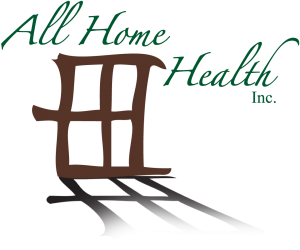Not everyone who requires in-home care has an injury or a chronic illness. In fact, many individuals simply need daily assistance to maintain independence and quality of life. Home care services are tailored to provide patients and their families with personalized support, ensuring the best all-around experience.
Understanding the different types of home care services available is the first step in choosing the right care for your loved ones.
For all of your in home health care needs contact All Home Health, serving the greater Twin Cities Minnesota.
At-Home Physician Care
For those who need higher-level access to medical professionals, in-home doctor visits are an excellent option. Licensed physicians can make house calls to treat specific illnesses or injuries, offering peace of mind that your loved one is receiving the specialized care they need—without leaving home.
Nursing Care
Nursing care is one of the most common forms of in-home care. Under the guidance of registered nurses and nursing assistants, patients receive professional medical support in the comfort of their homes.
Once a doctor approves the treatment plan, the nurse manages day-to-day needs, which may include:
-
Wound dressing
-
IV therapy
-
Pain management
-
Medication administration
This service allows patients to remain at home while still receiving skilled medical attention.
Occupational and Physical Therapy
Patients recovering from injuries or illnesses often benefit from in-home occupational or physical therapy. Licensed therapists can help patients:
-
Regain mobility
-
Restore independence in daily activities
-
Improve overall strength and coordination
Having therapy performed at home helps patients feel more comfortable and motivated in their recovery.
Social Services
Sometimes, a patient’s well-being extends beyond medical needs. In these cases, social workers provide valuable support. They can assist with:
-
Counseling
-
Benefits coordination
-
Care planning with multiple specialists
Having these services available at home makes the process more accessible and less overwhelming for families.
Companionship Services
Not all in-home care involves medical treatment. Companionship services provide emotional support and help reduce feelings of loneliness. Caregivers may also assist with:
-
Cooking meals
-
Light housekeeping
-
Engaging activities
These services ensure that loved ones not only receive care but also feel connected and supported in their daily lives.
At-Home Dietary Support
As people age, nutritional needs become more critical. A dietitian can evaluate dietary habits, monitor nutrient intake, and provide personalized recommendations. This helps prevent deficiencies and promotes overall health—all from the comfort of home.
Transportation Services
Mobility challenges can make it difficult for older adults to travel safely. At-home transportation services provide reliable rides for appointments, errands, or social outings, helping loved ones remain independent while reducing risks.
Home Health Aides
When daily tasks become difficult, a home health aide can provide essential support. These caregivers help with:
-
Bathing
-
Walking
-
Eating
-
Dressing
-
Getting in and out of bed
While they don’t perform medical duties, home health aides work under the supervision of nurses to ensure safe and effective care.
Finding the Right Home Care
Whether your loved one needs medical support, therapy, companionship, or help with everyday activities, there is a type of home care to meet their needs. By understanding the different options, you can select the best care plan to help them live life to the fullest—comfortably and confidently at home.
For all of your in home health care needs contact All Home Health, serving the greater Twin Cities Minnesota.
